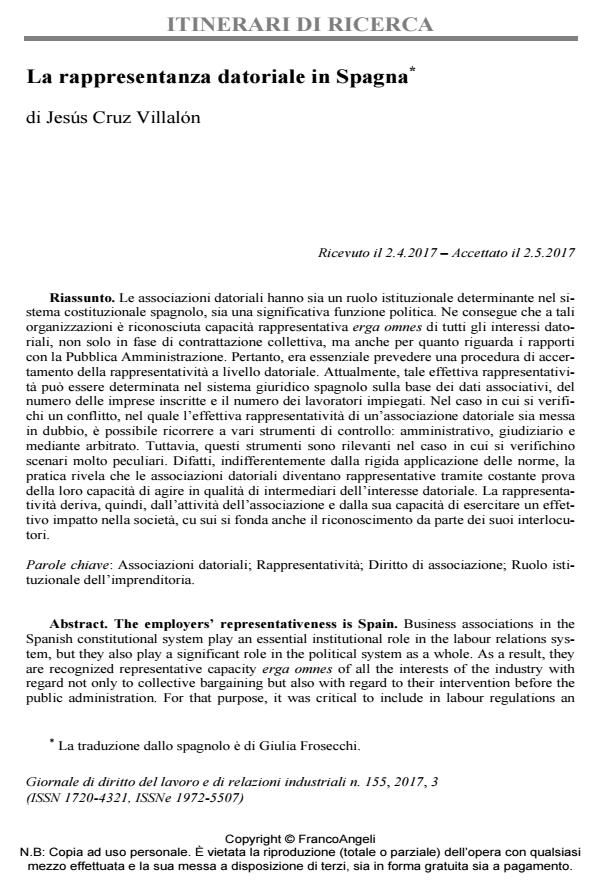The employers’ representativeness is Spain
Journal title GIORNALE DI DIRITTO DEL LAVORO E DI RELAZIONI INDUSTRIALI
Author/s Jesús Cruz Villalón
Publishing Year 2017 Issue 2017/155
Language Italian Pages 19 P. 419-437 File size 801 KB
DOI 10.3280/GDL2017-155001
DOI is like a bar code for intellectual property: to have more infomation
click here
Below, you can see the article first page
If you want to buy this article in PDF format, you can do it, following the instructions to buy download credits

FrancoAngeli is member of Publishers International Linking Association, Inc (PILA), a not-for-profit association which run the CrossRef service enabling links to and from online scholarly content.
Business associations in the Spanish constitutional system play an essential institutional role in the labour relations system, but they also play a significant role in the political system as a whole. As a result, they are recognized representative capacity erga omnes of all the interests of the industry with regard not only to collective bargaining but also with regard to their intervention before the public administration. For that purpose, it was critical to include in labour regulations an accreditation procedure of effective representation within the entrepreneurship. Currently, this effective representativity can be determined in the Spanish legal system with reference to the degree of affiliation, the number of companies subscribed to those associations and the number of workers employed. In the event of a conflict where the effective representativity of a business association is questioned, it is possible to resort to various mechanisms of control: administrative, judicial and arbitration controls. Nevertheless, these mechanisms present themselves as relevant in very particular scenarios. Accordingly, irrespective of the application of strict legal norms, the practice reveals that business associations obtain their representativity through the daily demonstration of their capacity to act as intermediaries of the interests of the industry. The representativity is obtained through their action and their capacity of effective and social impact, which leads to a recognition from their interlocutors.
Keywords: Business associations; representativity; right of association; entrepreneurship institutional role.
Jesús Cruz Villalón, La rappresentanza datoriale in Spagna in "GIORNALE DI DIRITTO DEL LAVORO E DI RELAZIONI INDUSTRIALI " 155/2017, pp 419-437, DOI: 10.3280/GDL2017-155001